Glasgow faces rough sleeping rise after funding reduced, charity warns
- Published
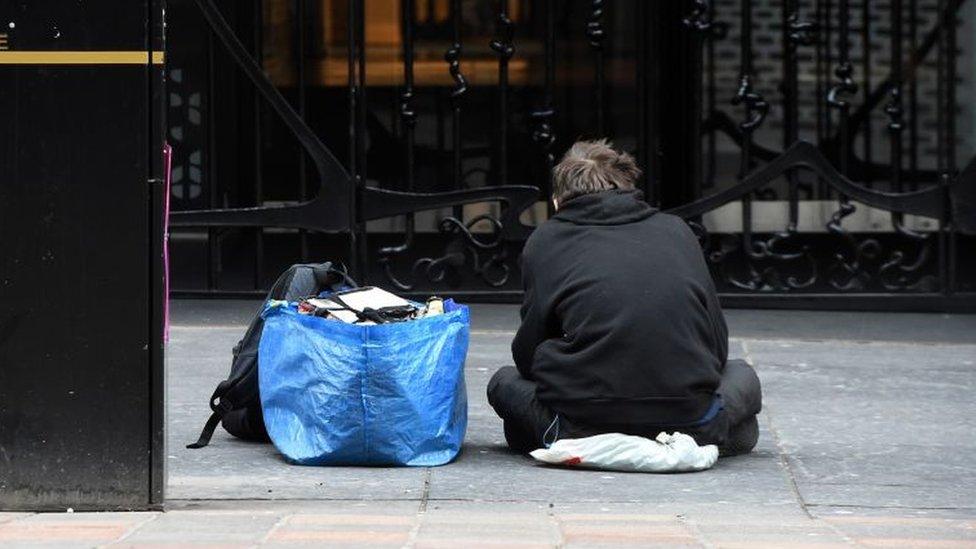
Scotland's largest city could see a rise in rough sleeping as funding is reduced for homeless bed and breakfast lodgings, a charity has warned.
Shelter said recent progress in Glasgow was at risk of being reversed as the health and social care partnership looks to make £4.9m in savings.
This includes "decommissioning" a hotel used to house homeless people.
Glasgow City Council said homelessness services face "unprecedented pressures".
It comes as figures released this week revealed 51 people have died in the city's homeless hotels since the pandemic.
Alison Watson, director of Shelter Scotland, said: "I think there is a real danger that the progress that Glasgow has made on tackling rough sleeping is going to go into reverse gear.
"Glasgow Council has done a good job of saying what it is it needs to do, but it's also clearly saying they need additional investment in support from Scottish government to deliver real and lasting change."
Figures released this year showed the number of open homelessness applications were at an all-time high in September 2022 - with the majority of 28,944 residing in temporary accommodation provided by councils.
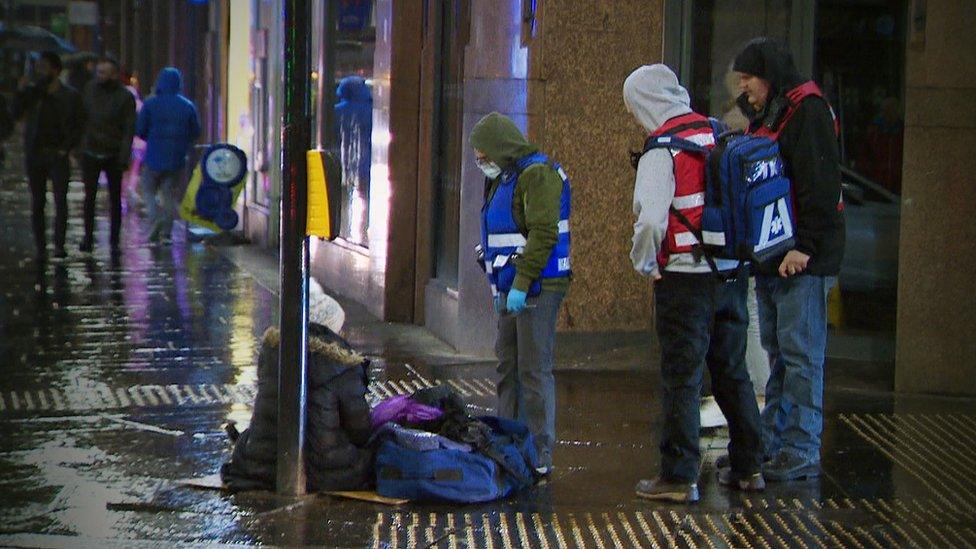
Rough sleeping could rise under plans to reduce funding on city B&Bs
A report delivered last week to the city's integration joint board - which administers homelessness services - said a £16m overspend is expected unless "decisive action" is taken.
It added that while the number of rough sleepers in the city was routinely reported as being in "single figures", Scottish government funding to provide temporary hotel accommodation ended in March this year.
Placements in hotels or B&B accommodation account for around 750 applications.
Meanwhile, the city faces a shortfall of 1,600 properties to provide temporary accommodation.
Plans are now underway to reduce the number of people being sent to hotels, including the Charles Rennie Mackintosh, external in the city's Union Street.
However, the report noted: "Despite all attempts to mitigate risk as detailed there remains a risk that Glasgow Homelessness Services will breach statutory duties to provide emergency accommodation.
"There is also an increased likelihood of rough sleeping and hardship for service users, reputational damage and potential judicial sanctions and additional costs.
"Whilst acknowledging the risk involved it is worth noting that these proposals are considered to be the least impactful when compared with the status quo, financial pressures and the increasing trajectory of demand."
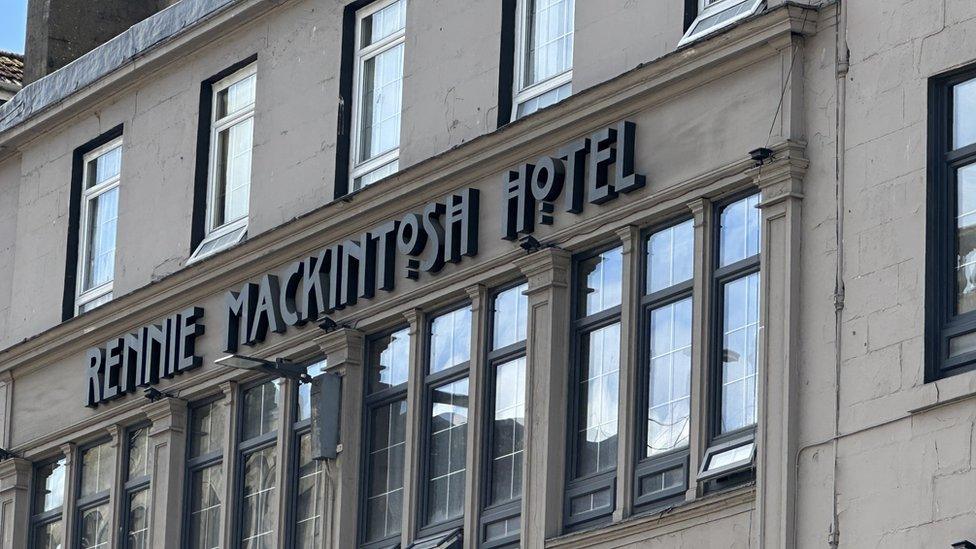
The Charles Rennie Mackintosh is one of the city centre hotels being used to house homeless applicants
The council has already stopped meal provision to homeless bed and breakfasts following the end of Covid funding.
Ms Watson said she agreed with the council's assessment that it could not continue to rely on B&Bs or hotels.
She continued: "Glasgow City Council, like a lot of Scotland's local authorities, has been over-reliant, particularly on hotels, for temporary accommodation.
"That's because they quite simply don't have enough social homes that they can bring into the pool to make sure that people have a decent, safe, and secure roof over their head."
She added the Scottish government should recognise the country was in "the grip of the housing emergency and take the action that's required which is driving up the supply of social homes".
Meanwhile campaigners have said the number of sudden deaths in the city's homeless hotels is becoming a "catastrophe".

'Thrown to the wolves'
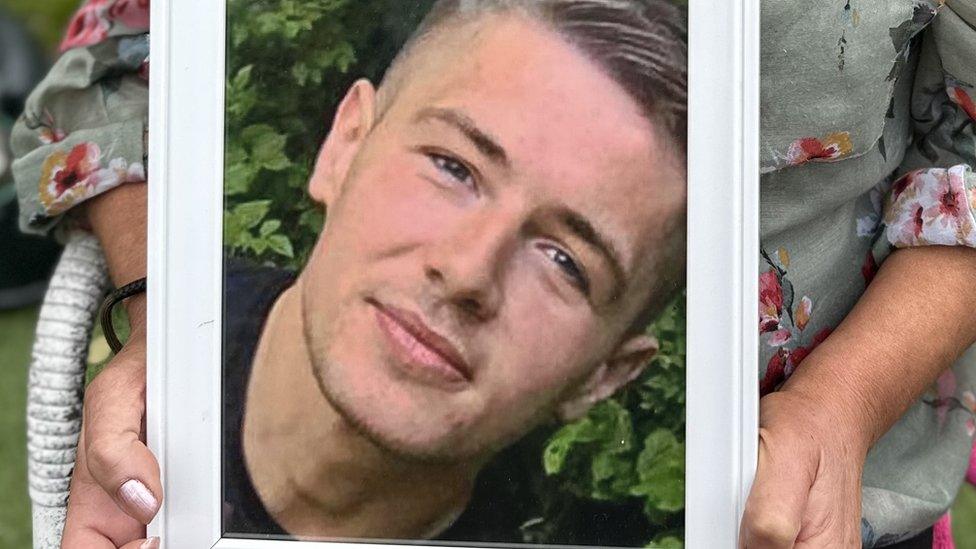
Frankie McVean died in a city centre hotel while waiting for social housing
Frankie McVean died in a city hotel while waiting for social housing.
He had spent eight months in the south side's Queen's Park Hotel, where his mother Linda said he fell in with the "wrong crowd".
She told BBC Scotland the 30-year-old frequently complained about the poor conditions.
Frankie died on 14 May of a suspected overdose.
Linda is now campaigning for better oversight at the properties and will meet the first minister later this month.
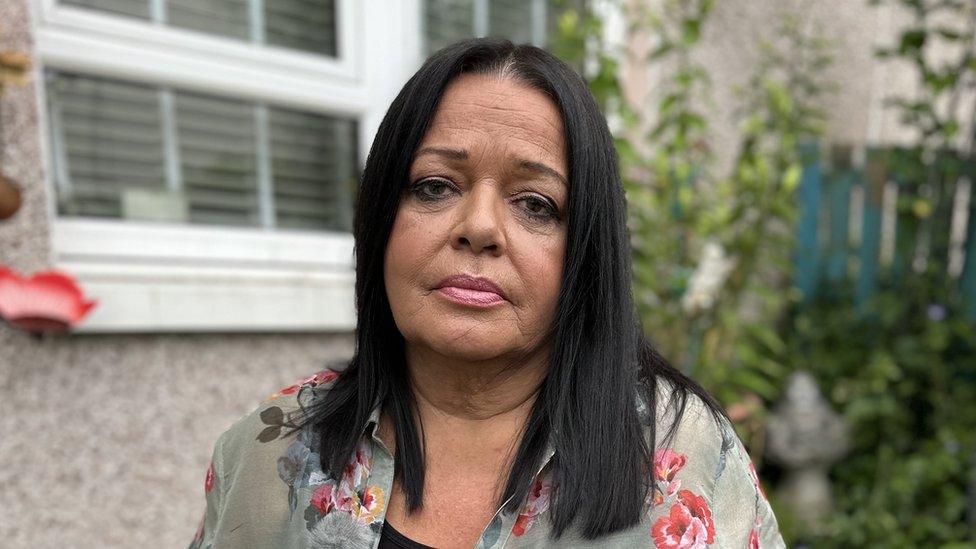
Linda McVean-Gunn will meet with the first minister to discuss her son Frankie's death
The 54-year-old also called for more police involvement to crack down on drug use at the hotels.
She said: "I hope they look at these hotels. They need to look at getting them fixed up, get greater care from social workers.
"I feel as if they're putting everybody in, throwing them to the wolves."
The Queen's Park Hotel has been approached for comment.

'Unprecedented pressure'
According to figures obtained by Scottish Labour this week, 132 people have died in temporary accommodation in Glasgow in the last three years.
The figures suggest 51 died in city centre hotels or B&Bs, according to a report in the Daily Record, external newspaper.
The council said individuals died from "poor health and sickness, lifestyle and natural causes".
A spokeswoman continued: "[Services] have robust arrangements in place to ensure we target those with multiple and complex care needs with a rigorous audit and review process in place to consider the circumstances of anyone who dies while known to our service."
Since 2020 the number of housing requests has soared to 36,000.
The spokeswoman said: "The cumulative impact of the lack of housing supply, cost of living crisis, inflation, changes to the asylum system, and increased numbers of people coming to Glasgow in search of accommodation is creating unprecedented pressures on homelessness services."
She added the council continued to liaise with the Home Office, social landlords and the Scottish government.
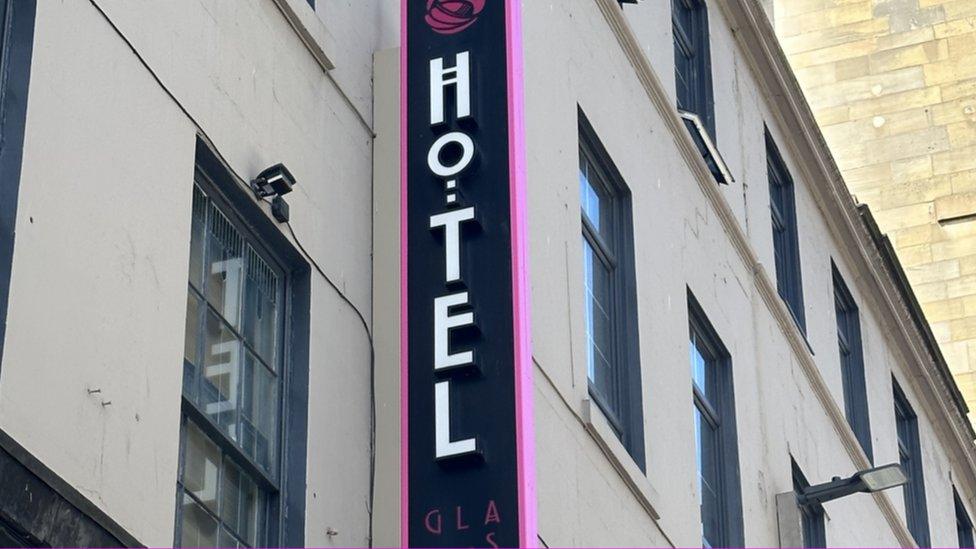
Around 750 homeless applicants are being housed in hotels in Glasgow
Housing Minister Paul McLennan said that, as well as allocating £1.5bn to fund local services in Glasgow, the Scottish government were also "providing local authorities with £30.5m annually for their work to prevent homelessness".
He continued: "Separately, we are providing a total of £100m from our multi-year Ending Homelessness Together fund to transform the homelessness system.
"Scotland has led the UK in the delivery of affordable housing with 122,201 affordable homes delivered since 2007, with 86,240 of these for social rent."
Mr McLennan added the city council had received £537.8m from the Scottish government in resource planning assumptions to deliver "ambitious affordable homes targets."
Related topics
- Published31 January 2023
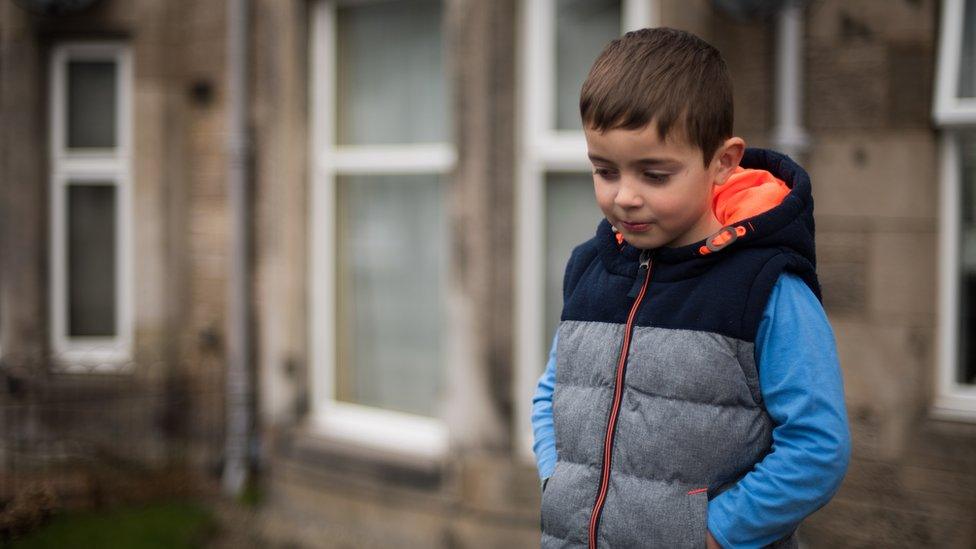
- Published22 September 2022

- Published21 February 2022
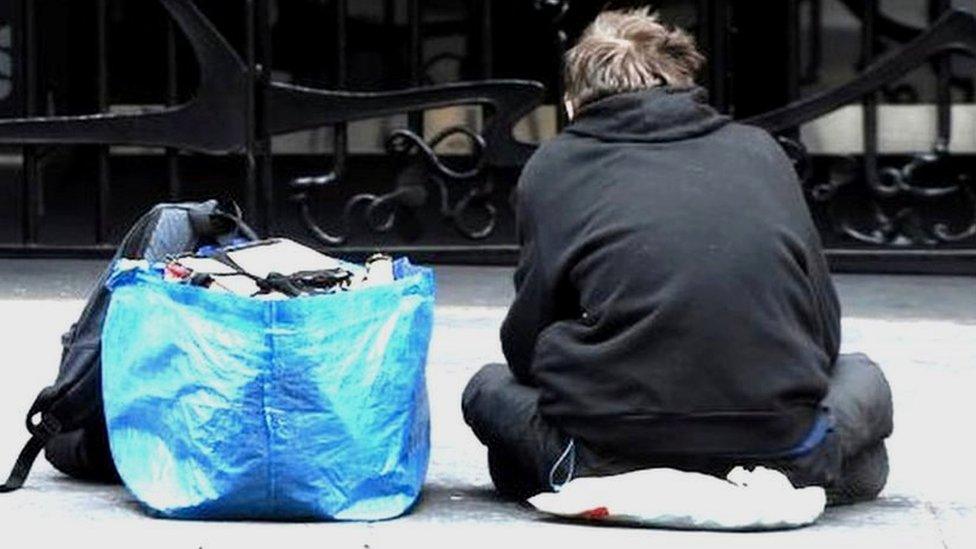
- Published23 February 2021
